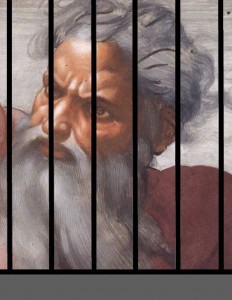Religion: It’s almost like being in love
You know how it is when someone is in the first throes of infatuation. We call it "love," but it's very different than the kind of relationship that eventually develops. Or doesn't develop. Think of all of those young couples "in love" who are at each other's throats only a couple years later. While they are in the romantic love stage, they are "caught up in the emotion." Their lover can do no wrong. Their lover is perfect. Their lover has no faults; oh, sure he or she has idiosyncrasies, but nothing that could possibly impede this relationship. At least not until the fairy dust settles and they are able to start seeing each other as flawed human beings, sometimes horribly flawed. Amazing as it seems, strong emotions can cause massive distortions in perceptions. They can make A look like Not-A. Strong emotions can also completely shut down our ability to think self-critically. How is it possible that perceptions and understanding can be massively distorted by emotion? How is it that a violent drunkard kleptomaniac can initially seem like a nice fellow? That's evolution at work. As Robert Wright once wrote in The Moral Animal, emotions are "evolution's executioners." We have deep instincts for falling in love, for losing control, for blinding ourselves to the other's faults so that we will make babies. I should restate this. It's not that evolution is trying to do anything at all. Evolution is not conscious and it has no plan. On the other hand, we are survivors at the top of a long branch of the tree of speciation. You and I and all of our ancestors have survived Nature's amoral pruning, millennium after millennium. We are extremely lucky that we evaded the weeding phase of breed and weed. The unrelenting reproductive urge, the one thing that every one of our ancestors had in spades, has been passed on to us or we wouldn't be here to ponder anything. ALL of our ancestors had it and acted on it: the compulsion to reproduce--the urge to merge. This ancient instinct is ubiquitous, even though, once in a while, a cigar is only a cigar. What is the most efficient way to make animals reproduce? How about this? Blind them to each others' faults and make them horny. [More . . . ]

